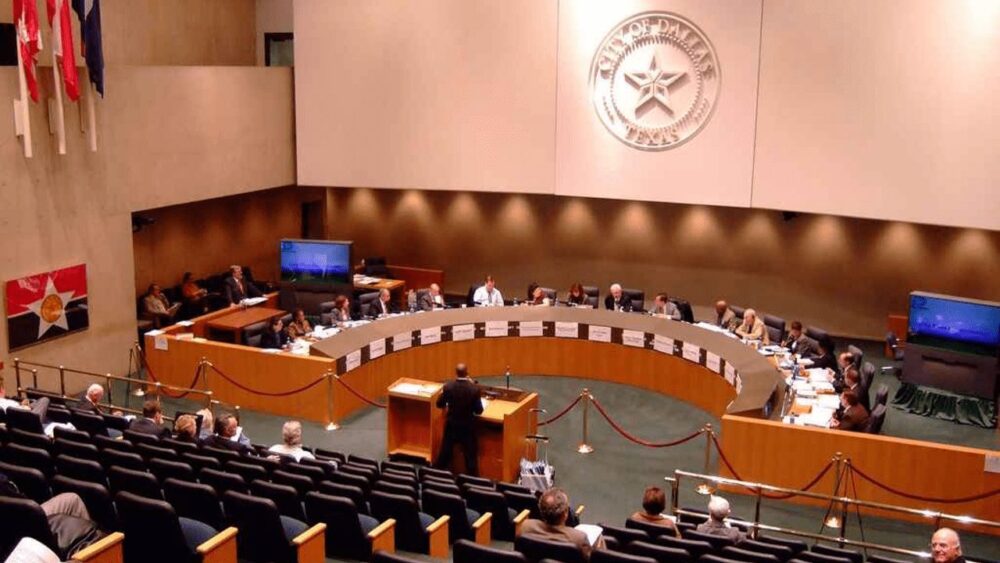The City Auditor released the Final Audit of City Boards and Commissions for the City of Dallas in early August. The audit examines the ways in which the management of the city complies with the City Charter. Mark Swann, City Auditor for the City of Dallas authored the report that points to ongoing problems filling vacant board positions and a lack of clarity on how funds are publicly accounted for.
“We are purely advisory, we are not enforcement,” Swann said in a telephone interview. “We present our report to management and they can either acknowledge the risk or agree with the recommendation or come up with some other way to mitigate the issue.”
In all, the audit recommends 14 actions that could be taken by various Boards and Commissions to improve performance and accountability to the public. The City Auditor uses a flagged system to rank the importance of each issue. Only one recommendation in the audit is considered of high-level importance, an ongoing lack of diversity in the appointment of numerous board and commission positions.
In its response to the audit, the City Manager’s Office described steps it plans to take to address some of the staffing and diversity issues brought forth in the audit.
“The City Manager’s Office agrees to implement the recommendations related to helping ensure boards and commissions have a quality and diverse candidate pool by reviewing the existing qualifications and requirements for hard-to-fill positions on boards and commissions with numerous vacancies and providing the City Council a proposal, as needed,” City Manager T.C. Broadnax wrote. “Additionally, the City Manager’s Office will review and edit vacancy requirements, including a review of the racial and ethnic make-up of boards and commissions, to help ensure boards and commissions can operate effectively and are representative of the City population.”
The audit identified that Hispanic and White ethnic groups are both misrepresented numerically on boards and commissions in the city. Hispanic people make up 41.7% of the Dallas population, according to the U.S. Census Bureau, but only represent 11.8% of filled positions. White ethnic groups are over-represented, filling 62.7% of seats but only accounting for 29% of the population.
City Secretary Billierae Johnson said in a response letter to the City Auditor that the recommendation to propose procedures to create diversity isn’t realistic.
“Members to boards and commissions are appointed by city council members and/or mayor, therefore, for city staff to develop procedures for this action to control the racial and ethnic membership is unrealistic, as it is not within their control,” Johnson wrote.
The audit further uncovered that numerous boards and commissions are seriously behind in filling vacancies and following rules about how to handle vacant seats. Seven of the 52 boards and commissions in the city had vacancy rates above 40% for fiscal years 2019 and 2020.
Three of the seven are Reinvestment Zone Boards responsible for the development of areas of the city. Projects include things like street maintenance, new buildings, zoning, and other activities vital to the growth of the communities.
The Building Inspection, Advisory, and Appeals board currently seat only nine people on a sixteen member board. This puts the Board dangerously close to failing to meet the required number of members to authorize rules. The Board has added only one member since 2018.
Another critical board responsible for codes is the Fire Code Advisory Board. This board should have a total of nine members but has only seated four in the last two years. Generally, the audit found that the requirements for appointment to positions were excessively limiting and resulted in an unrealistic candidate pool, leading to a lack of vacancy fulfillment.
Several of the recommendations made by the City Auditor involve transparency. The Audit found numerous instances of boards and commissions failing to properly document meeting minutes and a lack of public access to records from several boards and commissions. In part, the audit found that a lack of central responsibility for compliance was a leading factor in the lack of transparency.
The City Code calls for the CIty Secretary to be responsible for oversight, however, the function of oversight is split between three groups; the city secretary, the city attorney, and the city manager.
A major purpose of the City Audit is to identify areas in which managers may be able to identify ways to change practices to improve fiscal responsibility and performance. The audit identifies only two departments that report to the City Council budgets and operating costs of boards and commissions.
Sixteen departments that coordinate boards and commissions do not provide the information to the City Council in a manner that can inform the members of how funds are used. The City declined to take the recommendation of the Auditor, stating that itemizing costs for boards and commissions are unnecessary and impractical.
In all, the City of Dallas rejected ten of the fourteen proposals. Six of the transparency recommendations will be addressed through training enhancements rather than relying on the boards or commissions to follow recommendations.
The City of Dallas will establish expanded compliance training for boards and commissions and create procedures for verifying that proper documentation is retained in an appointee’s file by October 1, 2021. By June 2022, the City will review qualifications requirements for hard-to-fill vacancies on boards and commissions and establish procedures for recommending these positions to City Council members to fill.

